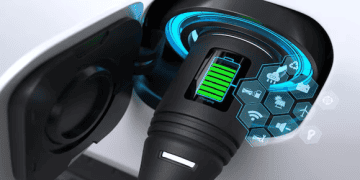Suzuki Motor Corporation has announced multiple collaborations with key industry players to ensure a stable and sustainable supply of batteries for its electric vehicle (EV) operations. The partnerships include agreements with Tata Gotion, TDS Lithium-ion Battery Gujarat (TDSG), FinDreams Battery, and ELIIY Power, each contributing specialized battery solutions for different vehicle applications.
These collaborations are part of Suzuki’s broader electrification strategy, aiming to diversify battery procurement and strengthen its supply chain. Tata Gotion will supply batteries for electric motorcycles, while TDSG will provide lithium-ion batteries for mild and strong hybrid vehicles. FinDreams Battery is designated as the supplier for battery electric vehicles (BEVs), ensuring a consistent supply for Suzuki’s EV production.
In addition, Suzuki is working with ELIIY Power to establish a battery research and development center at its Kawasaki Plant. The initiative focuses on in-house production and the development of domestically manufactured batteries to enhance technological capabilities.
A Suzuki Motor spokesperson stated, “The company is committed to optimizing battery procurement based on regional production conditions while focusing on energy efficiency, lean battery designs, and battery reuse systems. Additionally, localization efforts in India will align with the country’s growing EV market.”
India is a key player in Suzuki’s long-term EV and battery strategy, positioned as both a global production and export hub. The automaker plans to expand its annual production capacity to four million units and increase its portfolio to four battery electric models in India’s passenger vehicle market by 2030. BEVs are projected to account for 15% of Maruti Suzuki’s powertrain mix by the end of the decade, alongside CNG, hybrid, and internal combustion engine vehicles.
Suzuki recently introduced the e-Vitara, its first electric car, which will initially be exported to Europe before being launched in India. The company has also unveiled an electric version of its Access scooter.
To support its expansion, Suzuki is investing in new manufacturing facilities, including plants in Kharkhoda and Gujarat, and is exploring the possibility of establishing a battery factory. The company is also considering in-house procurement of battery materials to enhance self-sufficiency and competitiveness in the evolving EV market.
Through these strategic investments and partnerships, Suzuki aims to secure a strong position in the global transition to electric mobility, leveraging India’s growth potential as a key production and supply chain hub.
Get top supply chain report news on The Supply Chain Report. For international trade insights and tools, visit ADAMftd.com.
#SupplyChainNews #EVBattery #ElectricVehicles #Suzuki #AutomotiveIndustry

















